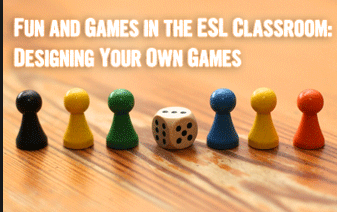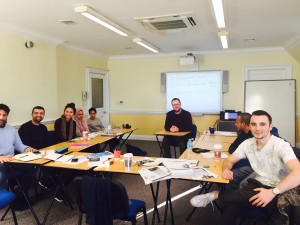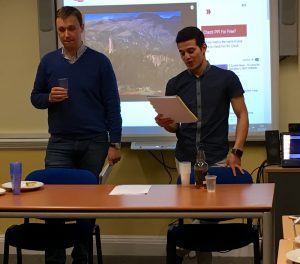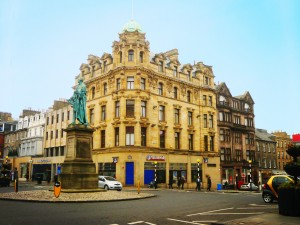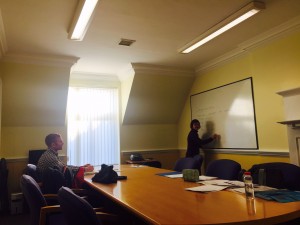ELA-Edinburgh’s next Trinity CertTESOL course begins on October 30th. Completing our 4-week intensive English teacher training course can open doors to exciting job opportunities around the world.
If the standard 9 – 5 and daily commute isn’t for working you, but you thrive from working with people, this could be just the ticket to changing your career around, finding peace of mind when looking for work overseas and becoming part of a creative and challenging industry.
The practical training and groundwork in teaching skills gives trainees the ability to find employment in a wide range of ways. Graduates of the Trinity CertTESOL work around the world for independent schools, further education colleges and universities and freelance: both face to face or online.
“An intense and rewarding learning experience leading to an international qualification. There’s not a country that doesn’t recognise it, it’s a passport”
– Douglas Mathieson, Teacher Trainer ELA-Edinburgh
What’s more; the Trinity CertTESOL is recognised internationally, is valid for life and opens the door to further skills and training.
- What do you get from ELA-Edinburgh’s CertTESOL course?
- Teaching practice with real English learners with different levels of English
- Lesson planning experience and practice designing courses
- Learner needs analysis experience
- Teaching one-to-one class practice
- Input and guidance from experienced tutors
- Structured sessions to help you understand language teaching
- Focus on professional awareness and development
- A respected certificate to kick start your new career
So, what do you need?
The course focuses on practical training competence, so no prior teaching experience is needed. Time management, the ability to prioritise, working as a team member and a willingness to share ideas, are perfect transferable skills you will have gained from jobs and education, essential to becoming an English teacher.
Find out how to book your place on our October 30th – November 24th course by contacting
email dos@elacademy.co.uk or phone 0131 226 6182
For more information about our school, check out our website ELA-Edinburgh
Follow us on Facebook, Twitter and Instagram







